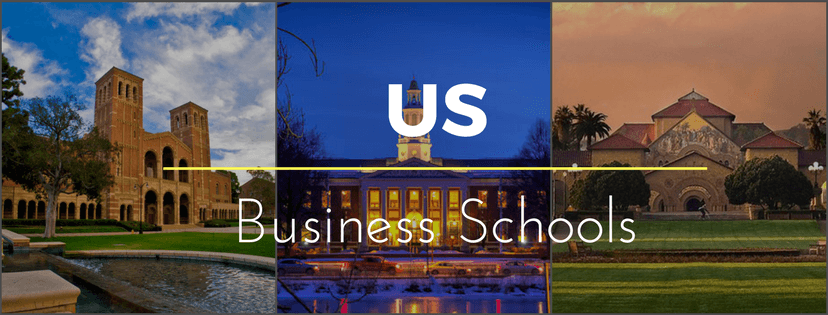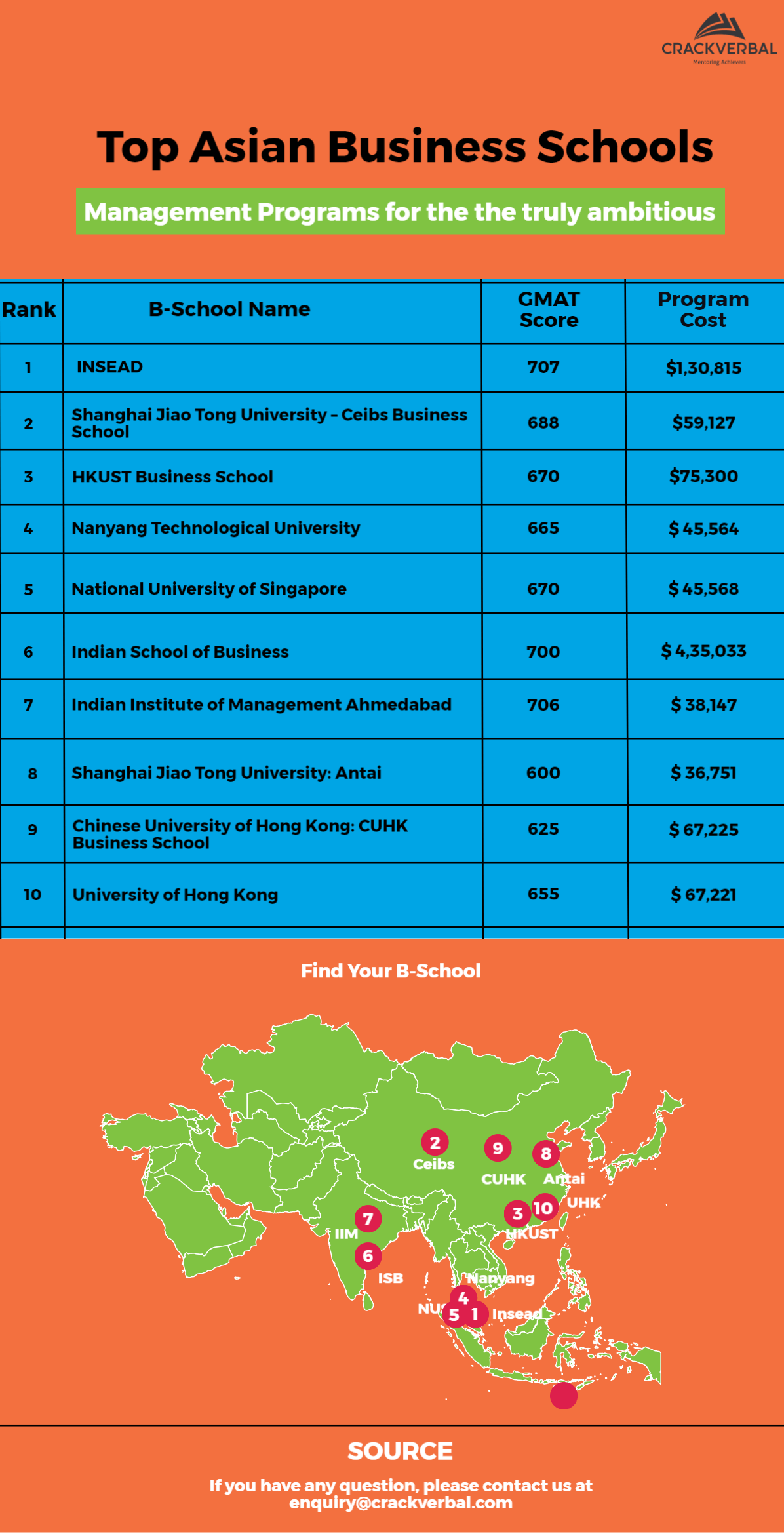Each one of us will definitely find someone in our neighborhood or among our relatives boasting of their daughter or son getting into an MBA program from say, Boston or Melbourne. But the location of your choice of B-school is not simply a matter of prestige. It is not something that you can select based on a game of ‘Inky Pinky…’.
Unfortunately, everyday, we encounter students who have no idea why they want to do their MBA in a particular country/continent.
The location of your B-school – from continent and country, right down to the city – is extremely important, and plays an important part in your MBA experience as well as your post-MBA opportunities.
Here’s why:
If you are planning to work in a particular country after your MBA, say France, an MBA from HEC Paris will be a better option than an MBA from Harvard or Darden. Similarly, if you have decided to continue living in India, then your best bet is ISB (which, by the way, is not the best option if you want to be placed outside India!)
Visa regulations and work permits in the country of your choice are also important criteria to consider. For instance, it is easier to obtain work permits in Canada and Australia than in Europe. Location is a strong factor in determining the kind of internships available to you.
If you are planning for an internship in venture capital or technology, then Haas and Stanford could be great options because of their proximity to Silicon Valley. Similarly, Stern at New York would be a great option for someone who wants a financial career.
If you already have relatives/friends staying in a particular country, you may want to look at schools in that region as this may impact your cost of living.
Let’s look at some of the pros and cons of B-schools in various countries:
1. US Business Schools:

Advantages of US B-Schools are:
Undoubtedly, the U.S. is a land of opportunities, with the best of infrastructure and great research opportunities, where you can safely invest your future.
You will find the Headquarters of most of the top companies in the world situated in the U.S. So, the number of top management roles in the U.S. surpasses that in any other country in the world.
The U.S. is home to some of the greatest B-schools in the world. Schools such as Harvard, Stanford, Wharton, Kellogg, etc permanently feature in Best B-schools lists. In fact, the oldest Graduate School of Business in the world is Tuck School of Business situated in Hanover, New Hampshire!
Disadvantages of US B-Schools are:
Visa regulations are quite stringent in the U.S. and becoming more so in recent times. To work in the U.S. after graduation, students need an H1-B visa sponsored by employers and there are only a limited number of visas that are issued every year.
The global economic situation and high-end job market are not in a great state at present, including in the U.S. So, post-MBA career options may not be as robust as expected.
U.S. MBA programs are some of the most expensive programs in the world. Many may not be able to afford these, especially in the absence of scholarships.
Some of the well-known US B-Schools are:
M-7:Harvard, Wharton, Stanford, Sloan, Columbia, Booth, Kellogg (Dream B-schools)
Top: Haas, Darden, Fuqua, Ross, Tuck, Duke, etc (Very reputed schools)
Mid: Marshall, Kelly, Krannert (Reputed schools)
Canada: Richard Ivy, Schulich, Rotman (Usually less considered but having some great MBA programs)
In fact, the Canadian economy is closely related to the U.S. economy. After graduating from Canada it is easier to work in U.S. and vice versa.
2. European Business Schools:

Advantages of European B-Schools are:
There are quite a few impressive B-schools spread over different parts of Europe. With good infrastructure, an international curriculum and diverse classrooms, they account for splendid programs for MBA aspirants.
Many European schools have dedicated 1 year programs in contrast to U.S. schools which a typically offer 2 year programs. So, if you are in your 30s with a good number of years of work experience and want an MBA degree to enhance your career, European schools may be your best option.
This choice will be accompanied by all the advantages of a 1 year program such as lesser cost, getting back to the market faster and a more focused & rigorous course.
Europe is blessed with a great culture, quality of life and picturesque locales such as England, France, Switzerland, etc. So your experience is bound to be awesome!
Disadvantages of European B-Schools are:
Poor economic climate in Europe: this may not be the best time to join a European school, especially if you wish to work their post your degree.
European visa regulations have been tightened. You will need to find a job while you are still on a student visa. Ironically, you may be denied a work visa because you don’t have a job – and you may end up caught in this vicious cycle!
European culture is not as relaxed as American culture. You will need to learn at least one of the European languages such as Spanish, French or German to cope in a European B-school.
Some of the well-known European Business Schools are:
Top: IMD (Switzerland), INSEAD (France), LBS (London)
Mid: SAID (Oxford), Judge (Cambridge), HEC (Paris)
Others: SDA Bocconi (Italy), Rotterdam (Netherlands), IESE (Spain), ESADE (Spain)
3. APAC Business Schools (Asia Pacific Business Schools):

Advantages of Asia Pacific Business Schools are:
South-Asian B-schools are closer to home, so you will have an “at home” feeling. It is easier to gel with your peers of similar ethnic backgrounds and culture.
Also, it is easier to come back to India on vacations in terms of time and cost. South Asia is a growing economy with some very promising B-schools and great MBA programs.
Countries like China, Singapore and Korea are giving U.S. and U.K. economies a run for their money. If you are looking for a decent MBA program at a very reasonable cost, you can look at South-Asian programs which are relatively cheaper than American or European programs.
Disadvantages of Asia Pacific Business Schools are:
It’s true that the economies of South Asian countries are developing at an accelerating rate, but they are still far behind their Western counterparts. For instance, despite its well-developed infrastructure, the Australian economy is still very much agrarian in nature. So, you have to carefully consider what kind of jobs you could find there after an MBA.
B-schools in South Asia are not as international in their approach as compared to those in the U.S. or U.K. You will not find many Americans or Europeans opting for South Asian MBA programs. So, the classrooms tend to be less diverse in nature.
An MBA program from the U.S. will be helpful even if you want to work in a South Asian country, but the opposite is not necessarily true. If your ultimate goal is to work in London or New York, an APAC MBA program may not be a great idea.
Some of the well-known Asian Pacific Business Schools are:
Australia: Melbourne Business School, AGSM Sydney
Singapore: INSEAD, NUS, NTU, SMU
Others: HKUST-Hongkong, AIM-Manila, CEIBES- China
4. Indian Business Schools:

Advantages of Indian B-Schools are:
The biggest advantage is that there are no visa regulations in your own country!
Half of the hassles with regard to foreign MBA programs involve obtaining visa permit to study and work abroad. You will essentially be in familiar territory – in your own comfort zone – and have opportunities to network with people of a similar cultural and ethnic background.
Reputed Indian B-schools such as ISB will familiarize you with case studies specific to the Indian market, making you fit to work and excel in India. Today, many Indian B-schools are accepting GMAT as an admission criterion.
Disadvantages of Indian B-Schools are:
Doing your MBA in India will not help you to get out of your comfort zone and explore newer opportunities in life. You will remain in your cocoon!
Indian MBA programs do not offer many international job opportunities. So if your goal is to work abroad, an Indian MBA may not be the best way forward!
Indian B-schools still attract a very small percentage of international students as compared to U.S. and U.K., and have large classrooms. This means less diversity and lesser classroom interaction.
Some of the well-known Indian B-Schools are:
ISB
IIM A – PGPX
IIM B – EPGP
IIM B – PGSEM
IIM C – PGPEX
IIM L – PGDX
XLRI – GMP
Great Lakes Institute of Management
Do you know how important Profile Fitment is, in selecting an MBA program?
Read our blog on Profile Fitment! Next in our series: 1 year vs. 2 year MBA programs! Are you wondering if you can get into a top B-School this year?
Let us help you!






